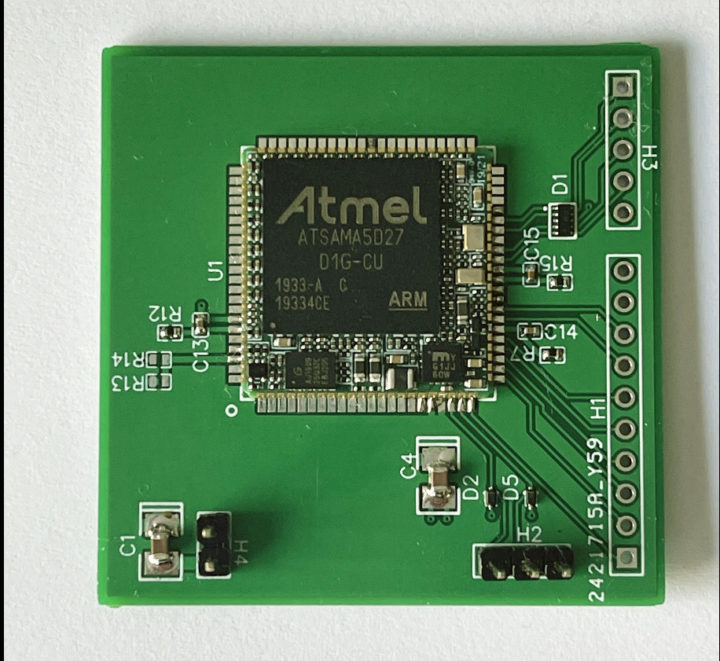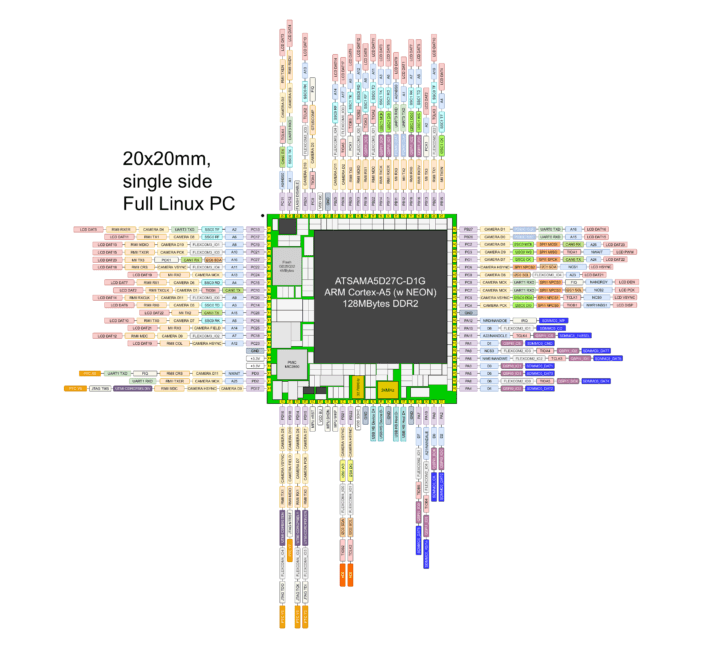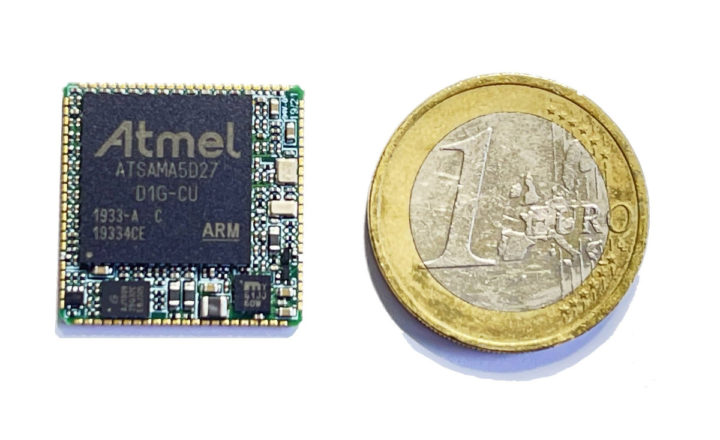DAB Embedded HaneSOM is a tiny (4 cm2) system-on-module based on Microchip SAMA5D2 Arm Cortex-A5 processor running Linux, which could make it the world’s smallest Linux module.
The small size is made possible by the use of a SAMA5D2 system-in-package that also integrates 128MB DDR2, and the only two other chips on the modules are a 4MB flash (GD25Q32) and the PMIC (MIC2800).
- SiP – Microchip ATSAMA5D27C-D1G system-in-package with SAMA5D27 Arm Cortex-A5 processor @ 500 MHz with NEON, 128MBytes DDR2
- System Memory – 128MBytes DDR2 memory
- Storage – 4 MBytes of QSPI Flash
- Castellated holes giving access to signal for:
- Storage – SD card interface
- Display – 24-bit RGB LCD TFT interface; capacitive touch controller
- Camera – Up to 5MP CMOS camera sensor support
- Audio – SSC, I2S
- Networking – 10/100M Ethernet
- USB – USB 2.0 (OTG and host)
- SPI, I2C, UART, CAN-FD, 12-bit ADC, PWM
- Misc – RTC clock, low power modes
- Supply Voltage – 3.3V
- Dimensions – 20 x 20 mm

While the board supports mainline Linux with U-boot, there’s also a bare metal SDK. Software support for Microchip SAMA5 should be pretty good with Yocto Project, Buildroot, and OpenWrt. You’ll find documentation, schematics, and user manual, and other information on the module’s Hackaday.io page.
The HaneSOM module is also in good company, and you should be able to reuse the software and sources for Microchip’s own ATSAMA5D27-SOM1 system-on-module and devkit, or community boards like the Giant board or the 96boards compliant Arrow Shield96 SBC, all of which are also based on SAMA5D2 SiP.

Typical applications for the SoM could include HMI applications, edge computing, IoT gateways, smart cameras, etc…
The tiny module recently launched on Tindie for $37, but it’s currently out of stock. There are also plans to sell the HaneSOM module via Digikey and Amazon.
Via Hackster.io

Jean-Luc started CNX Software in 2010 as a part-time endeavor, before quitting his job as a software engineering manager, and starting to write daily news, and reviews full time later in 2011.
Support CNX Software! Donate via cryptocurrencies, become a Patron on Patreon, or purchase goods on Amazon or Aliexpress





